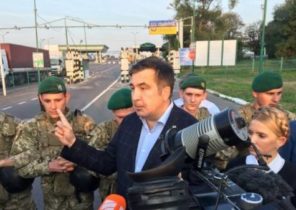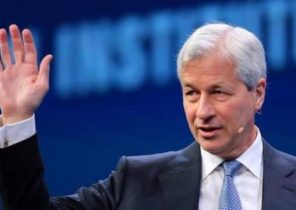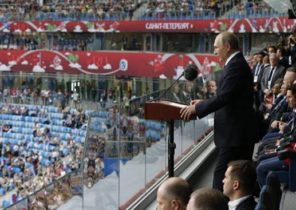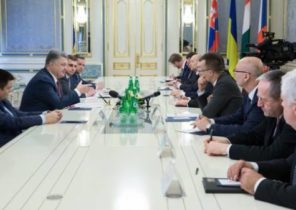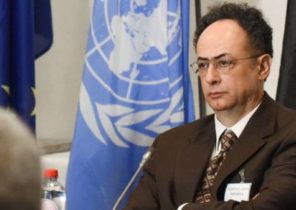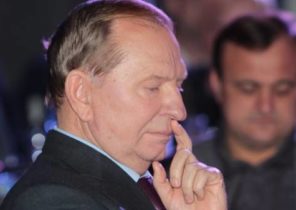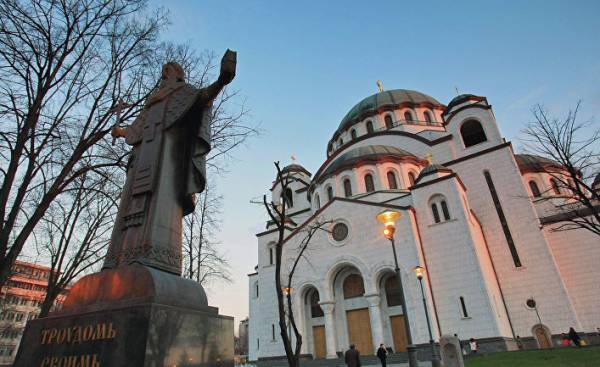
The disintegration of Yugoslavia and the exacerbation of national differences resulted in a linguistic consequences: now it was necessary to speak Bosnian in Sarajevo, the Croatian in Zagreb, Serbian in Belgrade and on the Montenegro in Podgorica. Linguists acknowledge the existence of regional variants, however, recognize that all of these peoples speak the same language, to which some would like to return.
March 30, many Balkan intellectuals presented to the Sarajevo Declaration on a common language. They seek to do away with the linguistic quarrels that divide the four former Yugoslav republics since the 1990s years. “Do they use in Bosnia and Herzegovina, Croatia, Montenegro and Serbia? The answer is — Yes”, — stated in the preamble to this document, in particular where it States: “we are Talking about the General polycentric language, i.e. the language spoken by several peoples in several States with the existence of recognized variants, as is the situation with German, English, Arabic, French, Spanish, Portuguese and many other languages.” As noted by the linguist Ranko Bulgaria, “the difference is that we have names of options, whereas a common language is no longer a status and lost their official name”.
The reaction was not long in coming. Most sharply it is manifested in Croatia. During the Easter service, the Archbishop of Zagreb Josip Bozanic called it “an aggression against the Croatian language,” whereas the President Kolinda Grabar-Kitarovic felt that “this so-called common language — a political project that died with Yugoslavia”. “This language has no name, because everyone knows that we are talking about Serbian” — said in turn, the Serbian linguist Milos Kovacevic. This ardent nationalist believes the Serbian language is “a treasure” who want to “steal” people.
In the Yugoslav era, no one had doubts about the existence of a common language, spoken by 15 million people in the Balkans, not counting the major diasporas. The language was called Serbo-Croatian or Croatian-Serbian, and write it using both the Cyrillic and Latin alphabets (the training was conducted from two forms of the letter). This language was in Vogue in Federal institutions and command of the Yugoslav army. In addition, it coexisted with many other languages used and taught in the Federation: Slovenian, Macedonian, Albanian, Italian, Hungarian, Gypsy, rutenskoy, Czech, Turkish, Slovak, etc.
BHCS at the Sorbonne
After the bloody breakup of the Federation in the 1990-ies are no more consensual concepts for the description of the former Serbo-Croatian language. The International Tribunal for the former Yugoslavia it was called BCS (Bosnian-Croatian-Serbian), while at the Sorbonne, proposed the designation BHCS (H — Montenegrin). According to the writer and translator Vladimir Arsenijevic, who was one of the initiators of the Declaration of a common language, “the question of the designation has caused heated debates. To use concepts such as “Serbo-Croatian” or “Yugoslav” is impossible, because with them is too much associated. We southern Slavs used to call it “our language”. As if in pursuit of a common identity, despite the political conflict…
In Croatia since the 1990s years have been great efforts to emphasize the differences between “Croatian” from the General rule. So, Croats tend to think of the neologisms or the use of a linguistic blueprint for foreign concepts in their course, for example, zračna luka (“air port”), whereas Bosnians and Serbs call it aerodrom, or pasolstvo (also exists in Russian) despite the fact that neighbors use the word ambasada… This trend further exacerbate the Champions of the purity of the language, often obscure words. Every year the country is attracting a lot of media attention competition for the “best new Croatian word”. In Serbia, everything revolves around the Cyrillic alphabet, which zealously defends the influential Orthodox Church. She is represented by the symbol “serbesti” which threaten means of communication like Internet, which is dominated by the also used in the country Latin.
Tensions over language leads in some cases to ridiculous situations. So, the Croats, like Belarusians and Ukrainians use old Church Slavonic designation of the month: travanj (literally “month of grass”) against april from the neighbors. In areas with a mixed population, people often use periphrase like “fourth month”. The situation is further aggravated with the statement “Bosnian” (it recognizes the number of turkisms, which are not used in spoken language) and “Montenegrin”. The latter is used as Cyrillic and Latin, and after the proclamation of independence in 2006 it was added two consonants to display special for country sounds. Serbian nationalists do not recognize the existence of the Montenegrin identity, and linguistic question regularly comes to the fore in this small country, which recently joined NATO. A few years ago ATMs in the North of Montenegro (there live Orthodox, and some consider themselves Serbs, and the other Montenegrins, and a large Bosnian community), given the option of “native language”…
The flourishing regional media
Anyway, all this has never prevented people from different countries to understand each other. According to Croatian linguist from Bosnia and Herzegovina Josip Botica the differences between the variants of Serbo-Croatian do not exceed 10% of the vocabulary. Actually, going from the beginning of 1990-ies of the disputes are not primarily scientific, but political. The proof of this “understanding, which provides virtually trouble-free communication” native speakers of different language options, is the appearance of a number of regional mass media: Radio Slobodna Evropa Balkans “al-Jazeera” that is part of the CNN news channel N1. Despite a number of economic issues (books in Croatia are more expensive than in Serbia or Bosnia and Herzegovina), publishing projects managed to overcome transnational challenges.
In 2009, Vladimir Arsenijevic created the Association Krokodil to “promote the culture of dialogue, reconciliation and rebuilding shattered relations in the Western Balkans”. He seeks to regain the luster of South Slavic literature. “I grew up in Croatia, but I live in Serbia and combine words from the two variants of the language — he explains. — When I started writing, I had problems with the publishers who wanted to change the word.” The same can be said sociologist Igor Stiks, who was born in Sarajevo, studied in Zagreb and Paris, and now lives in Belgrade. “I always ask the translators, what language you write, but no one answer me,” he jokes.
“In the name of so-called linguistic differences, we strengthen existing boundaries and create new ones. Language policy of the four States is focusing on differences and, as a consequence, creates a harmful and dangerous practice and leads to the unacceptable and deplorable segregation in school for “native language”. All this creates a generation of young nationalists,” says Ranko Bulgaria. The authors of the Declaration of a common language saying that do not pursue any political project (the nationalists from their countries immediately would accuse them of nostalgia for the old shared state). Whatever it was, obtained by their initiative, the response clearly shows the desire of the inhabitants of the Balkans to cross over built in a quarter century barriers.
